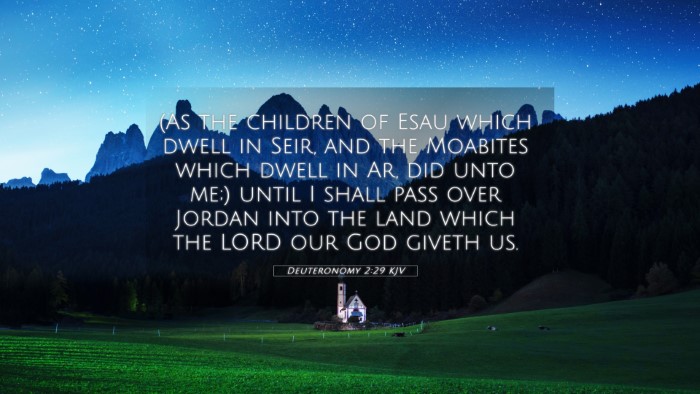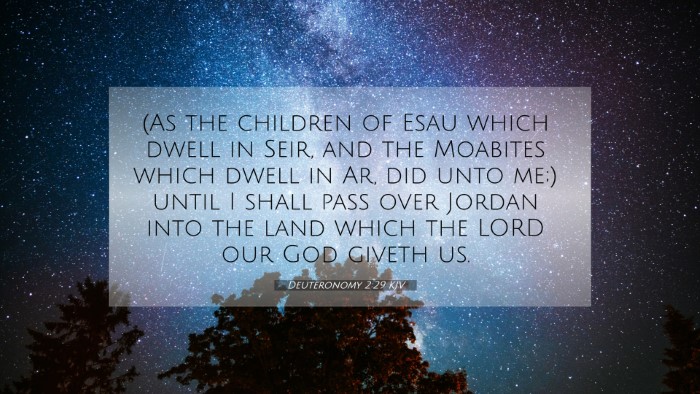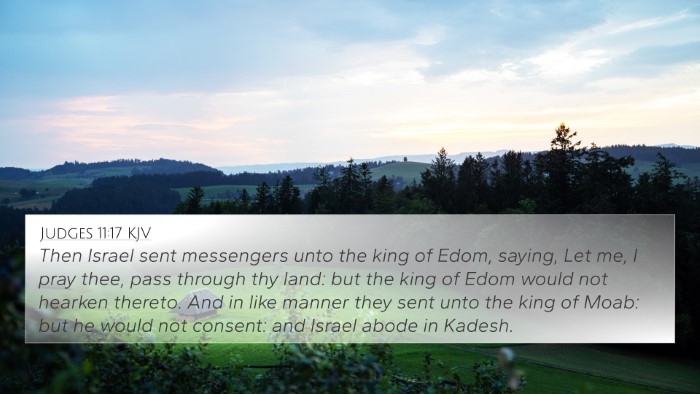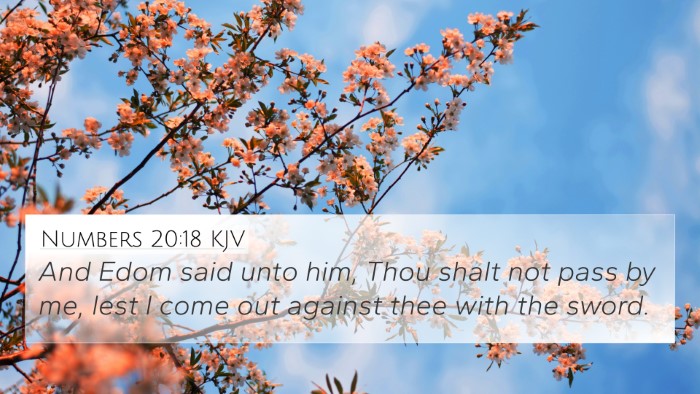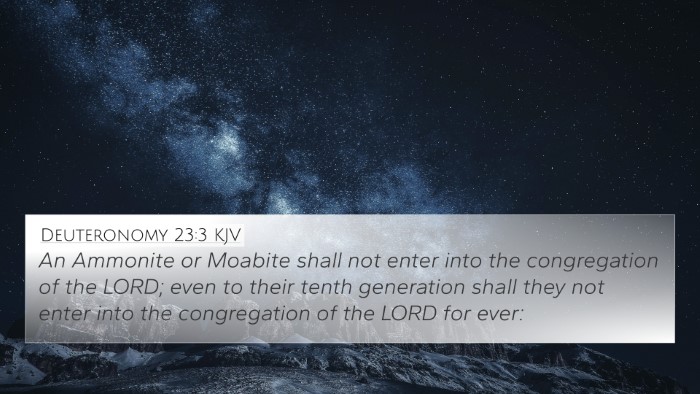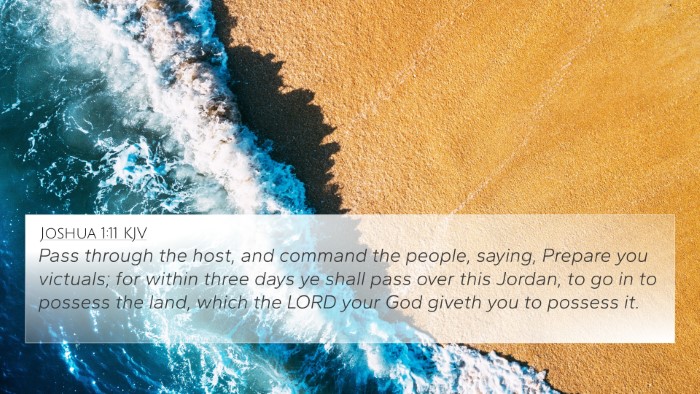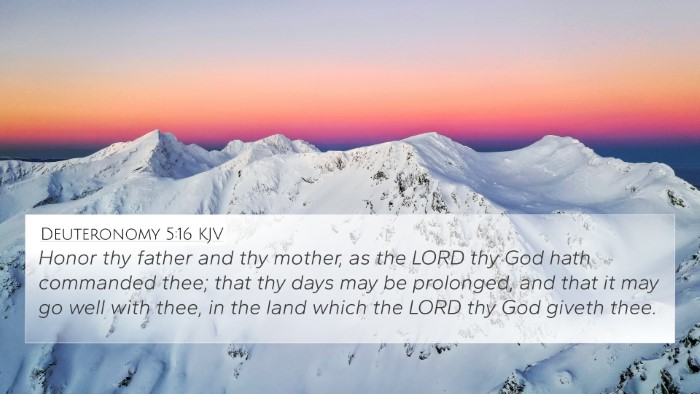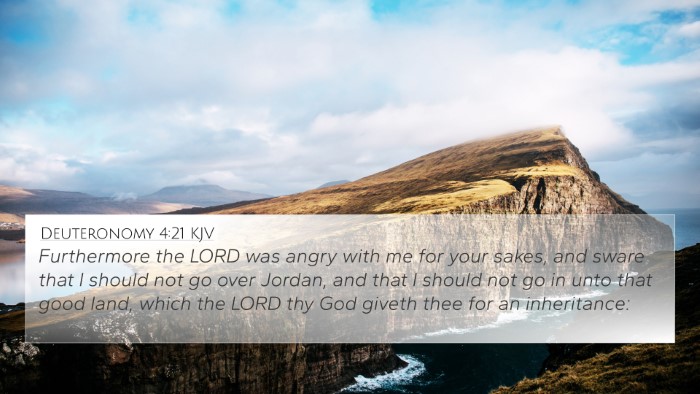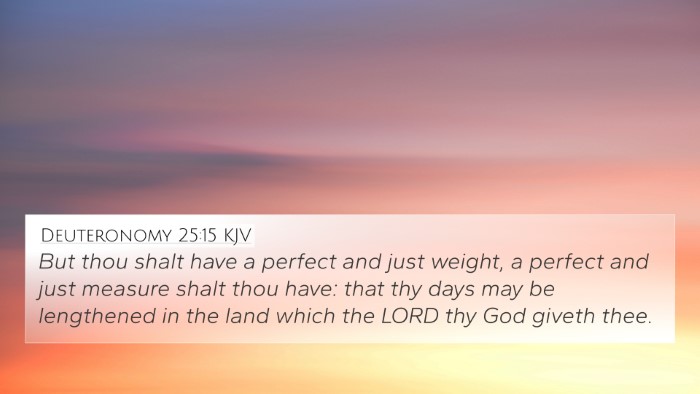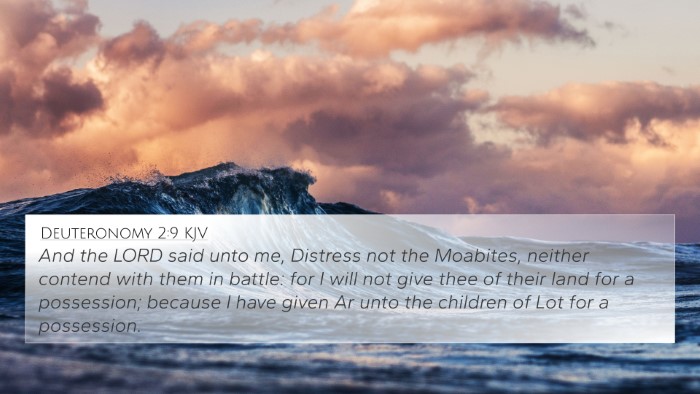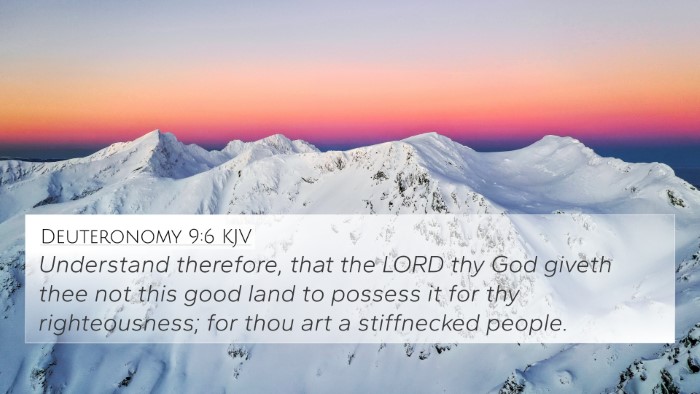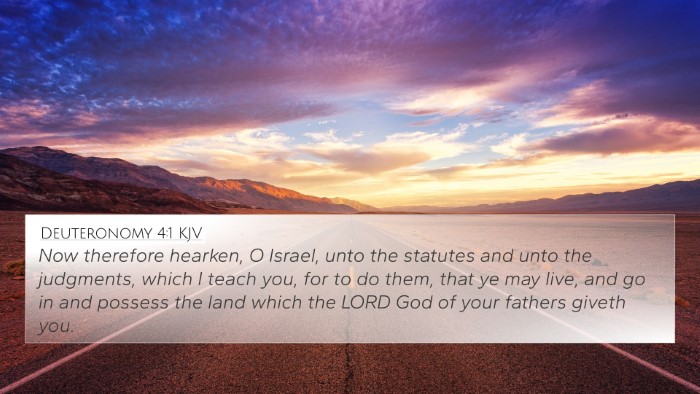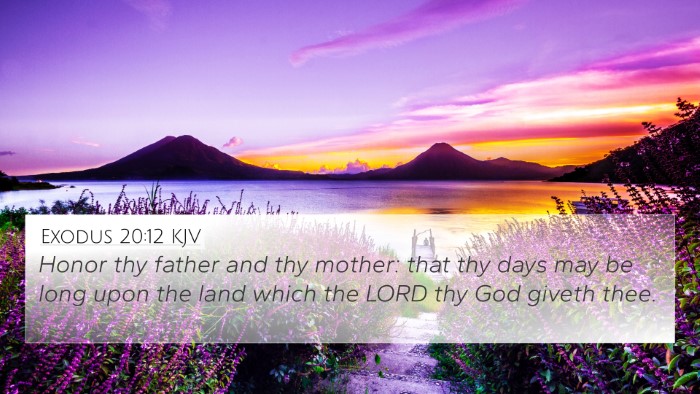Understanding Deuteronomy 2:29
Deuteronomy 2:29 states, "As the children of Esau, which dwell in Seir, and the Moabites which dwell in Ar, did unto me; I shall do unto them." This verse reflects on the historical context in which the Israelites navigated through territories occupied by other nations. Below is an analysis combining insights from Matthew Henry, Albert Barnes, and Adam Clarke.
Contextual Background
The Israelite journey through the wilderness brought them into contact with various nations. In this passage, Moses communicates God's command regarding interactions with the Edomites and Moabites, establishing guidelines for the Israelites as they prepared to enter the Promised Land.
Verse Meaning
This verse emphasizes the principle of reciprocity in how nations treat one another, as noted in the commentaries:
- Matthew Henry: He highlights that the Israelites are instructed to respect the land of Edom and Moab, acknowledging God's providence in allowing these nations to inhabit their territories.
- Albert Barnes: Barnes elaborates on the necessity for the Israelites to approach these nations with a spirit of peace, contrasting the approach taken by other hostile nations in their dealings with Israel.
- Adam Clarke: Clarke discusses the historical implications of these relationships, noting that the descendants of Esau and Lot were related to the Israelites, hence calling for a diplomatic approach rather than hostility.
Key Themes and Principles
This verse serves to demonstrate several essential themes in the Biblical text:
- Respect for God-Established Boundaries: The Israelites were to recognize and honor the territories allotted to other nations.
- Divine Sovereignty: The mention of God's role in the territorial inheritance of the children of Esau and the Moabites underscores His sovereignty in the affairs of nations.
- Reciprocal Relationships: The principle of treating others as they wish to be treated is evident, reflecting a broader moral code found in Scripture.
Related Bible Cross-References
To further understand this verse, it is beneficial to explore cross-references that provide a deeper context and reinforce its themes:
- Genesis 25:29-34 - The story of Esau selling his birthright, explaining the origins of the Edomites.
- Deuteronomy 2:4-5 - An earlier reference where God instructs the Israelites not to provoke the Edomites.
- Numbers 20:14-21 - The Israelites seeking passage through Edom and their ensuing refusal.
- Ruth 1:1 - The Moabites and their connection to the Israelite lineage through Ruth.
- Matthew 5:7 - “Blessed are the merciful, for they shall receive mercy” aligns with the verse's theme of reciprocity.
- Isaiah 63:1 - A prophetic reference to Edom that connects back to their identity and relationship with Israel.
- Micah 7:16-17 - Prophetic imagery of nations witnessing the justice of God through Israel's experiences.
Insights from Public Domain Commentaries
These insights deepen the understanding of Deuteronomy 2:29:
Matthew Henry's Perspective: He encourages readers to consider the broader application of treating others with respect and honor, even those with whom there may be historical rivalries.
Albert Barnes' Reflection: He calls attention to the need for strategic wisdom in interaction, urging believers to reflect the character of God in their dealings.
Adam Clarke's Analysis: Clarke points out the theological significance of understanding historical relationships as a means to comprehend God’s overarching plan for humanity.
Finding Cross-References in the Bible
For those interested in exploring further, here are some tools for Bible cross-referencing:
- Bible Concordance: A valuable tool to locate specific verses and their thematic relationships across the Scripture.
- Cross-Reference Bible Study: Engaging in a methodical approach to identify and compare verses helps in building a comprehensive understanding of biblical texts.
- Bible Reference Resources: Resources like topical Bibles help categorize verses by themes, facilitating thematic studies in the Word.
Conclusion
Deuteronomy 2:29 serves not only as a historical note but also as a profound lesson on the importance of respect, understanding, and the moral law inherent in our dealings with one another. By delving into cross-references and utilizing biblical study tools, believers can uncover deeper connections that resonate with the overarching narrative of Scripture.

